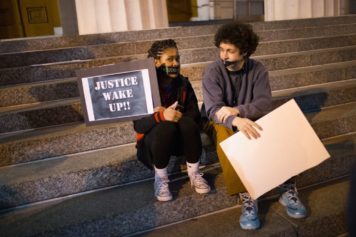
Earlier this year California voters passed Proposition 47, which downgraded many drug possession and many non-violent crimes from felonies to misdemeanors.
Under the new law, crimes like shoplifting, forgery, fraud, petty theft, and possession of small amounts of drugs would be treated as misdemeanors.
Inmates who were already serving time for felony charges of these crimes are expected to be freed as they await trials for the new misdemeanor charges.
The state corrections department has already started notifying nearly 5,000 inmates that they can now petition judges to have their felony convictions and sentences reduced.
For many, the time they have already served behind bars will serve as more than enough time to cover a misdemeanor charge.
Markku Heikkila is one California resident who is getting a “second chance” thanks to the new law.
“I got a second chance,” he told CBS News. “Almost a get out of jail free card.”
Heikkila had five felony convictions for drug possession but those will now be wiped from his record and replaced with misdemeanor charges instead.
Proposition 47 emerged as a solution to the state’s high prison population.
Decades of a “tough on crime” mentality in California have resulted in more than 20 prisons throughout the state being filled since the 1980s.
Now, instead of building new prisons and attempting to stuff more inmates in already crowded cells, Proposition 47 is allowing the state to deal with crime on a much deeper level.
“Under the umbrella of getting tough on crime, we were doing things that made no sense,” said San Francisco District Attorney and former police chief George Gascon to CBS News. “People that we were incarcerating, 60 percent of those people were being re-incarcerated within three years and the people continue to re-offend because we’re not dealing with the problem.”
It was clear that the real answer to dealing with the state’s high prison population and crime rates was to focus on recidivism and what factors were driving people to commit crimes in the first place.
By drastically cutting down on the prison population, legislators hope the state will also be able to drastically cut down on spending.
Experts predict that Proposition 47 could potentially save the state anywhere between $750 million and $1.25 billion over the course of five years.
The money that is saved will be spent on mental health, truancy prevention and drug treatment programs.
Instead of focusing on the punishment, the new law will focus on breaking the cycle.
“Instead of being stuck in a cycle, there’s actually a way to break out of the cycle now,” Heikkila said.
Critics of the legislation suggested that fewer criminals will seek help for drug problems if they will only be facing misdemeanor charges.
It is a common practice for district attorneys to reduce felony charges to misdemeanors if those charged agreed to enroll in some sort of drug rehabilitation program.


